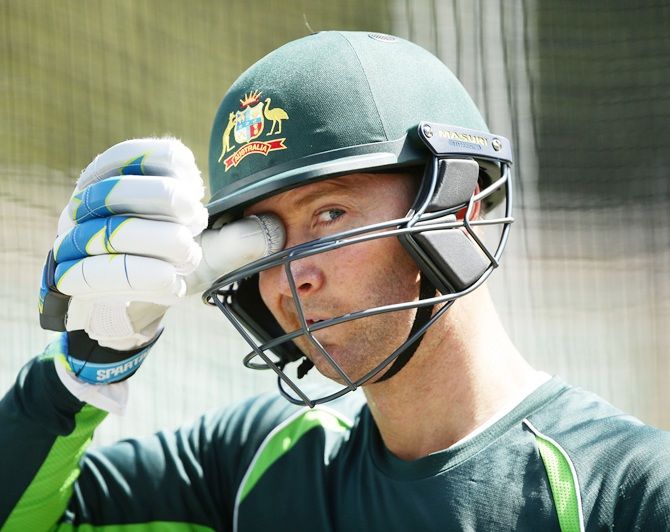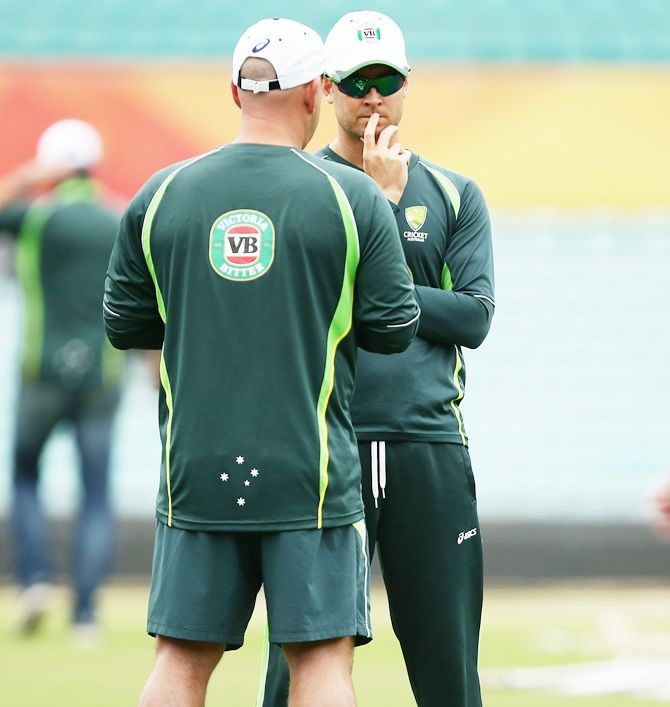‘Australia looked very rusty’
Australia looked second-best against their closest competitors in a match that was billed as the final’s dress-rehearsal

As the league stage of the ongoing 2015 ODI World Cup enters its last week, pre-tournament favourites Australia currently occupy third spot in Pool A. They have five points from four games – two points from the 111-run win in their opening game against England, a solitary point from the washed-out match against Bangladesh in Brisbane, and then two more points from a 275-run win over Afghanistan in Perth.
In between, they lost to Trans-Tasman rivals New Zealand by a narrow one-wicket margin in Auckland. It was a high voltage game at Eden Park wherein 40,000 fans created a raucous atmosphere, intimidating even. Australia’s hard-hitting batting line-up was bowled out for a paltry 151 runs in just 32.2 overs. Trent Boult and Daniel Vettori tied the batsmen back and rolled them over with some ease.
"To be honest Australia looked very rusty. They had two weeks off after their opening match against England on day one of the tournament. It had to play its part and it almost felt like the World Cup hadn’t started for them. Some of their shots just reflected that,” opined former New Zealand skipper Stephen Fleming.

Two points in his statement ring out loud and clear. First, the lack of proper game-time hurt the Australian batsmen. As much as Boult and Vettori troubled them, there were enough silly shots played, particularly by their middle order batsmen who were looking to get on top of the game. It was underlined by skipper Michael Clarke post-match when he said that his batsmen ‘needed to work on their defence a bit more, diverting focus from T20-type shot-making’.
And second, a stretched-out schedule has hurt Australian indeed. They have played these four games across a span of 19 days. There was a seven-day gap between their England and Bangladesh matches, increased to 14 days thanks to cyclonic rain at the Gabba. In comparison, co-hosts and co-favourites New Zealand played their first three matches – against Sri Lanka, Scotland and England – within a period of seven days.
No wonder, Australia looked second-best against their closest competitors in a match that was billed as the final’s dress-rehearsal. They managed a strong turn-around against Afghanistan but their current position is far from ideal. The question at this juncture for Australia then is to not only address the qualification problem in their next two matches against Sri Lanka and Scotland, but to do it effectively in order to generate serious momentum going ahead in the tournament.
The Lanka game in Sydney on March 8 is a pivotal one for both sides. They are placed second in Pool, with six points from four matches, one point ahead of Australia. Both teams stand on the cusp of qualification for the knock-out stage, however, the crux of the matter lies in where they qualify. With both teams facing minnows in their last league-stage matches, the result of this particular clash will decide which team finishes second in Pool A, and therein avoids a clash with the second-placed team in Pool B, probably South Africa.
As such, there is quite a lot at stake for Australia here. In that light the game against Afghanistan put them in the right shape heading forward. Their top-order got runs, their bowlers worked out a fine win to get the net run-rate going, and they even got their team selection right, dropping the non-performing Shane Watson for fit-again ‘finisher’ James Faulkner.
If there is one worry for the four-time champions going ahead, it is that Clarke really hasn’t proven his mettle since the comeback from injury. He scored only 12 runs against New Zealand and then opted not to bat in Perth. Glenn Maxwell was sent out instead, despite the team placed at a comfortable 274/2 and Clarke needing batting time in the middle.
It is a glaring error particularly as George Bailey has been dropped to make way for Clarke in the XI, one that will come sharply under the scanner if Australia are not able to generate sufficient momentum ahead of the knock-out stage in their bid for a record fifth title.
Apostrophe Content and Entertainment











